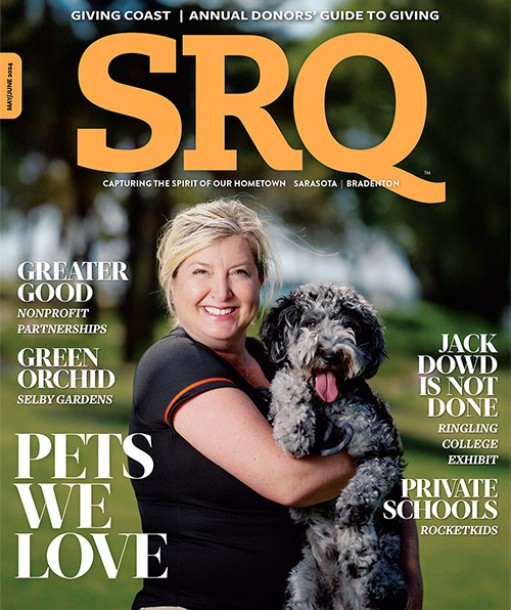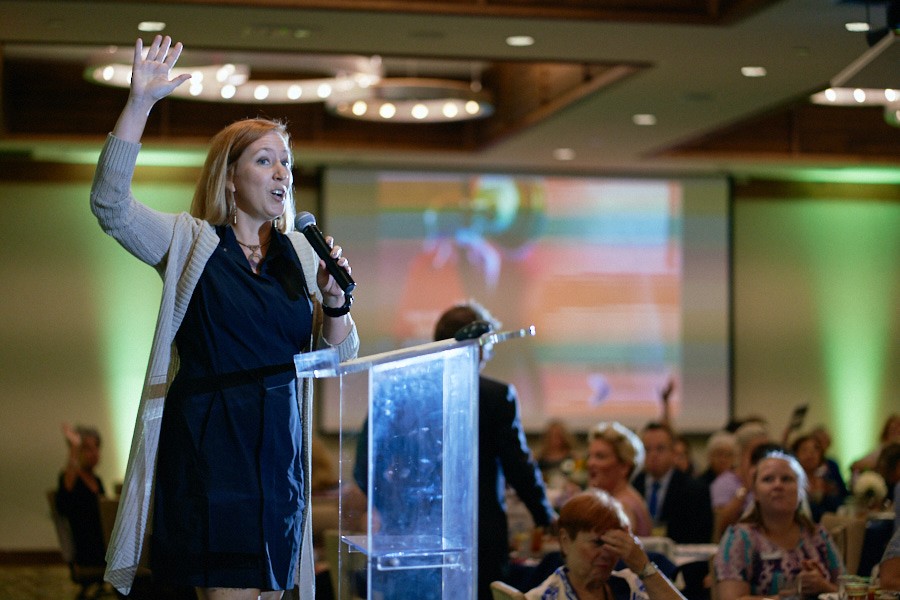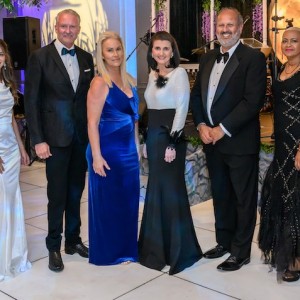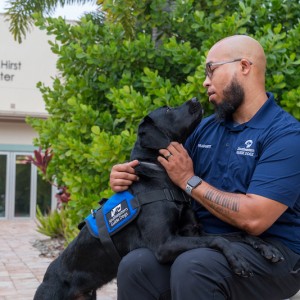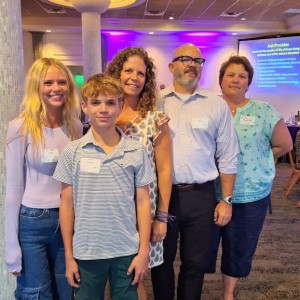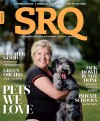Transformative Philanthropy: Changing a Nonprofit's Culture
Todays News
SRQ DAILY FRIDAY WEEKEND EDITION
FRIDAY JUL 27, 2018 |
BY JACOB OGLES
Photo by Wyatt Kostygan: Julie Henry discusses change at a Thursday SB2 luncheon.
Transformation may be the key to charting an organization’s future, but that doesn’t mean people like it. At a gathering of philanthropic leaders Thursday, keynote speaker Julie Henry opened her speech with a simple query: “How many of you love the idea of change?” The questioned inspired chuckles, but her follow-up turned that reaction toward introspection. “How many love it when you are initiating the change?” she asked. “When it’s not my idea, I’m not as happy.”
The most recent of SRQ’s SBE luncheon series, titled “Transformative Philanthropy,” tackled the difficulties of bringing organizations, many with decades of experience helping people, to grips with demands in the modern world. Henry, a facilitator and consultant with Finish Line Leadership, said even executives forcing evolution can grow wary of the process.
“Creating a culture responsive to change but also proactive to change is key,” she said. “That requires board membership, leadership and talent that is comfortable being uncomfortable.”
Henry also participated in a panel with other philanthropic voices to talk about how nonprofits need to constantly shift to serve their missions.
Christie Nolan, founder and president of Mission Matters Consulting and Coaching, says perpetual reassessment of effectiveness will be what carries organizations through needed evolution. “Any change started with an assessment of an organization,” she said. “Is the culture conducive to where we are going?” She stressed that friction may arise from such shifts, but that’s needed some times. “People think conflict is a bad thing,” she says. “It gets a bad rap.”
Betsy Delgado, vice president of Mission and Education Initiatives for Goodwill Industries of Central Indiana, agreed and reminded that board tension often comes from having a depth of varied expertise. “You don’t want everybody to believe the same thing,” she said. “When there is a conflict is when we do a lot of talking.” That’s when new ideas get explored thoroughly, she said.
Henry said the key to change sometimes may be finding the right messenger calling for it. That’s why outside consultants can sometimes serve as catalysts, because they can point out problems or potential course changes without bringing the background of history or interpersonal board relationships.
The next SB2 event, “Philanthropic Agenda,” will be held Nov. 29.
Photo by Wyatt Kostygan: Julie Henry discusses change at a Thursday SB2 luncheon.
« View The Friday Jul 27, 2018 SRQ Daily Edition
« Back To SRQ Daily Archive




